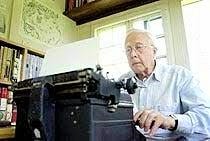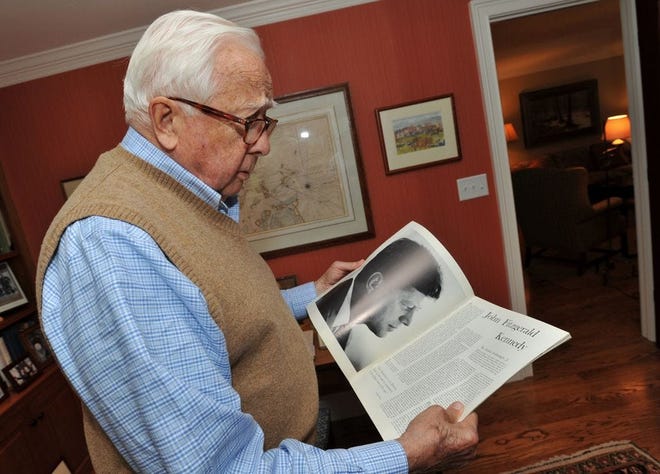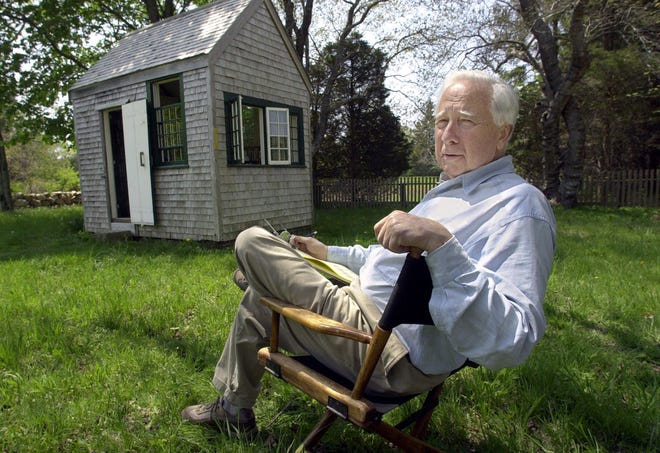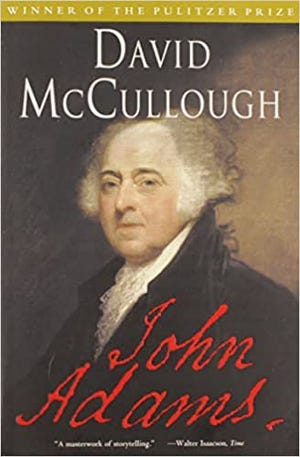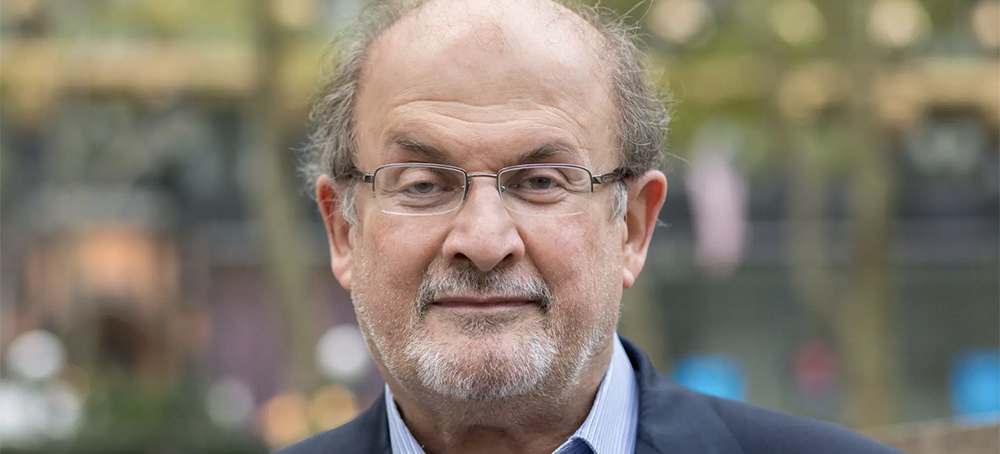Efforts are bound to be made to somehow equalize or level the acts of Rushdie and his tormentors and would-be executioners. This is a despicable viewpoint.
The terrorist assault on Salman Rushdie on Friday morning, in western New York, was triply horrific to contemplate. First in its sheer brutality and cruelty, on a seventy-five-year-old man, unprotected and about to speak—doubtless cheerfully and eloquently, as he always did—repeatedly in the stomach and neck and face. Indeed, we accept the abstraction of those words—“assaulted” and “attacked”—too casually. To try to feel the victim’s feelings—first shock, then unimaginable pain, then the panicked sense of life bleeding away—to engage in the most moderate empathy with the author is to be oneself scarred. (At the time of writing, Rushdie is reportedly on a ventilator, with an uncertain future, the only certainty being that, if he lives, he will be maimed for life.)
Second, it was horrific in the madness of its meaning and a reminder of the power of religious fanaticism to move people. Authorities did not immediately release a motive for the attack, but the dark apprehension is that the terrorist who assaulted Rushdie was a radicalized Islamic militant of American upbringing—like John Updike’s imaginary terrorist in the novel “Terrorist,” apparently one raised in New Jersey—who was executing a fatwa first decreed by Ayatollah Khomeini, in 1989, upon the publication of Rushdie’s novel “The Satanic Verses.” The evil absurdity of the death sentence pronounced on Rushdie for having written a book actually more exploratory than sacrilegious—in no sense an anti-Muslim invective, but a kind of magical-realist meditation on themes from the Quran—was always obvious. (Of course, Rushdie should have been equally invulnerable to persecution had he written an actual anti-Muslim—or an anti-Christian—diatribe, but, as it happens, he hadn’t.)
For the next decade, Rushdie was under protection and, though far from disappearing from the world—for the most part, he went where he wanted—it was always under guard. (I remember him, at least once, with mordant humor, going by the moniker Michael Jackson, italicizing his notoriety by hiding under the name of someone even more notorious.) Over time, though, with a courage that seems even more remarkable now than it did then, he dropped the protection and went about unescorted and unprotected—reclaiming his own humanity by refusing to be made into a special case of any kind. He would not allow himself to be reduced to the caricature that his idiotic enemies wanted to make of him, or into the equally caricatural role of a martyr for truth. He was a writer, with a writer’s pastimes and a writer’s rights. Friday’s attack was a reminder of just how implacable those enemies are, and a reminder, at a timely moment, that, when an autocrat encourages violence, violence happens. When theocrats or autocrats or simple demagogues inflame their followers, fires erupt, and innocent people are burned even if the time between the fuse being lit and the flame exploding may be longer than we could have imagined.
Finally, if more locally, it was horrific because it had seemed to those who knew him that the fatwa had faded in significance and threat, that it had become the subject for retrospective memoir, as in his fine one, “Joseph Anton,” and even for actual comedy. No one can forget—or now not wince a little at the memory—Rushdie’s hilarious cameo on Larry David’s “Curb Your Enthusiasm,” a couple of seasons ago, where he counselled Larry, then under an imaginary fatwa himself, on the benefits of fatwa sex. Though the apologists for the Iranian government insist that the fatwa had been disregarded or increasingly neglected by the authorities, none in power had had the decency to reject it, much less denounce it—indeed, the current Supreme Leader, Ayatollah Khamenei, seems to have reiterated the fatwa as recently as 2019—and the murderous assault on Rushdie only seems to have earned gloating and crowing from the holy men in Iran. Seyed Mohammad Marandi, a figure involved in the U.S.-Iran nuclear negotiations, announced on Twitter that he “won’t be shedding tears for a writer who spouts endless hatred … contempt for Muslims … Islam.”
Of course, Rushdie did no such thing. What makes the story so tragic, and the comic-television moment so illustrative of his nature, is that Salman, to those who knew him—no, know him—as a friend, was the most amiable of men, the least narrowly contentious, the most rational and reasonable guy they would ever meet. Full of lore and life, with immensely comprehensive tastes and subjects, over dinner he would talk as readily, and as ably, of movies and TV series and pop music, which he loved, as he would of literature and religion. (Nor was he unwilling to be self-deprecatingly comic in order to assist a social occasion; I recall him once doing a karaoke version of Gloria Gaynor’s “I Will Survive” at a party in London.) In the thirty years or so that I have known him—far from intimately but steadily and always pleasurably—I was always impressed by the effortless equanimity with which, in public at least, he dealt with his strange fate. (We met when we walked through the great 1992 Matisse show at MOMA together, at the height of the threat, and he was full of delight in each painting as it passed, with a nice, fully developed if slightly ironic sense of how much Matisse had drawn on Islamic civilization, on Persian ornaments and North African textiles, for his inspiration.)
For one true thing is that, unlike his predecessor V. S. Naipaul, whom he greatly admired and who I think he feared did not admire him, Rushdie had, and has, in truth no “Western” bias. No one could have been more pointedly contemptuous of imperialism, more open to the intermingling of postcolonial and Western themes, or more engaged in the project of postcolonial writing, sympathetic to the efforts of those marginalized or forced to the edges of acceptable experience to be heard and have their stories told. Telling those stories—writing about India in English from an Indian point of view—was what his greatest book “Midnight’s Children” is all about. His commitment to the English language was as real as his commitment to post-imperial writing.
Efforts will be made, are bound to be made, to somehow equalize or level the acts of Rushdie and his tormentors and would-be executioners—to imply that though somehow the insult to Islam might have been misunderstood or overstated, still one has to see the insult from the point of view of the insulted. This is a doubly despicable viewpoint, not only because there was no actual insult offered but also because the right to be insulting about other people’s religions—or their absence of one—is a fundamental right, part of the inheritance of the human spirit. Without that right of open discourse, intellectual life devolves into mere cruelty and power seeking.
“The most rudimentary thing about literature—it is here that one’s study of it begins—is that words are not deeds.” Those were the words of the Soviet dissident author Andrei Sinyavsky as he tried to explain to his equally deaf judges just what a novel is, shortly before being sentenced to a labor camp. Literature exists in the realm of the hypothetical, the suppositional, the improbable, the imaginary. We relish books for their exploration of the implausible which sometimes defines a new possible for the rest of us. Our commitment to that belief—to what is quaintly called freedom of speech and liberty of expression—must be as close to absolute as humanly possible, because everything else that we value in life, including pluralism, progress, and compassion, depends on it. We don’t know what it is possible for us to feel until we are shown what it is possible for us to imagine.
The idea—which has sprung to dangerous new life in America as much on the progressive as on the theocratic side of the argument—that words are equal to actions reflects the most primitive form of word magic, and has the same relation to the actual philosophy of language that astrology has to astronomy. Sticks and stones really can break bones. Words can never hurt you, just challenge your mind and categories. (And yes, of course, some words are vile and can be rejected by our calling them so. No one wants to protect authors from bad reviews, even those by autocrats; it is threats from bullies that they need protection from.) Everyone has a right to be offended by whatever offends them, and everyone on earth has a right to articulate their offense. No one has a right to maim or kill someone because our words offend them. Blasphemy is not a mighty category demanding respect but a pitiful invention of those who cannot tolerate having their pet convictions criticized. It demands no respect from anyone; on the contrary, it requires solidarity among all decent people in opposing it. An insult to an ideology is not the same as a threat made to a people. It is the opposite of a threat made to a person. To assume the criticism of ideas as assaults on people is the end of the liberal civilization. The idea that we should be free to do our work and offer our views without extending a frightened veto to those who threaten to harm us isn’t just part of what we mean by free expression—it is close to the whole of what we mean by civilized life.
Emmanuel Macron, the President of France, put out a brave and precise statement on Friday evening: “For 33 years, Salman Rushdie has embodied freedom and the fight against obscurantism. He has just been the victim of a cowardly attack by the forces of hatred and barbarism. His fight is our fight; it is universal.” Though “obscurantism” may be a word that is, well, obscure, to Americans, the point is right. The line between the fight for freedom and the surrender to hatred is absolute. The assault on Rushdie only clarifies its contours.
